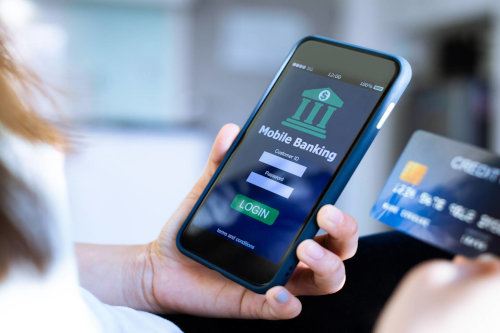Having a business bank account has become inevitable in today’s dynamic business environment. For one, business transactions are slowly transitioning to cashless. And as such, to remain competitive and able to cater to a wide range of customers, it’s crucial to provide convenient ways for your potential consumers who want to pay with credit cards, wired money, and other modes of payment.

Aside from catering to your customers, going cashless through a business bank account can help avoid the risks of carrying and managing hard cash, which can be a security concern. Allowing your customers to settle their payments by sending money directly to your bank account, the process can be simplified since you won’t have to deal with physical banknotes and coins.
If you’re yet to open a business bank account and you’d like to do so, here are essential things you may need to consider when opening a bank account for your business:
Allow Multiple Currencies
Business growth is the desire of every business owner. And one way of growing your business is transforming it from local to global. Aside from creating a platform that allows a larger audience to browse your products or explore the services your enterprise is offering, opening a multi-currency business account to facilitate easy payment after sales is also highly recommended.
For one, you can receive payment from your overseas customers in their local currency with multi currency business accounts. Another advantage of a multi-currency account is you can store the money you receive in foreign currency and use it later without converting it. This can help minimize expenses in conversion fees. On the other hand, if you’d like to withdraw the money, you can convert it to your local currency.
Banking Fees
Usually, banks will charge some maintenance fees, especially for business checking accounts. However, some banks may waive the fees if you maintain a certain balance in your account every month. In addition, for small businesses, some banks could offer lower fees, so they’ll have less trouble meeting them.
With that in mind, before you open a business account, inquire and ask the banking institution about the fees you have to pay should you open a business account with them. From there, consider visiting and talking to more banks and comparing their maintenance fees to help you get to know more about your options.
Moreover, you need to know if there are fees attached to your account’s early termination because your bank may require you to have an active business account for a minimum of set years according to their policy. On top of that, any transaction may attract some fee; thus, you may also want to know how much is charged for each transaction.
For instance, are the fees constant regardless of the amount? Are there categories in transactions with differing fees? You may also seek to know if there are fees to be charged if you withdraw money using an ATM card or over the counter. Knowing this information before opening an account can help you make informed decisions about the finances of your small business, such as choosing the right bank to partner with.
Introductory Offers
Some financial institutions generally have offers and promotions to entice consumers to open new accounts with them. You can take advantage of this and gain possible incentives as you set up your business bank account.
Offers attached to new accounts may include bonus cash when you make the minimum amount of money as the initial deposit. Some banks could also offer to waive your account’s maintenance fees for a period. And in some cases, depending on the financial institution, some could offer rebates.

Mobile Banking Features
In this modern age, various fintech innovations continue to revolutionize the business industry, and one of these advancements is mobile or online banking. Aside from the convenience during transactions, it also makes it easier and more efficient to monitor the cash flow of your small business. With a simple tap on your mobile phone or gadget, you can track your account balance and the various transactions you had without visiting the bank’s premises.
With that in mind, ensuring that you open a business bank account with a financial institution that offers mobile banking features can be to your advantage.
Final Thoughts
Managing a business without a bank account might be impossible in this era. As a result, you may have to open one for your startup or small business. However, before opening an account, it’s essential to factor in some considerations to help you make a more informed decision.
Hopefully, the insights in this article can help guide you as you set up a bank account for your business.